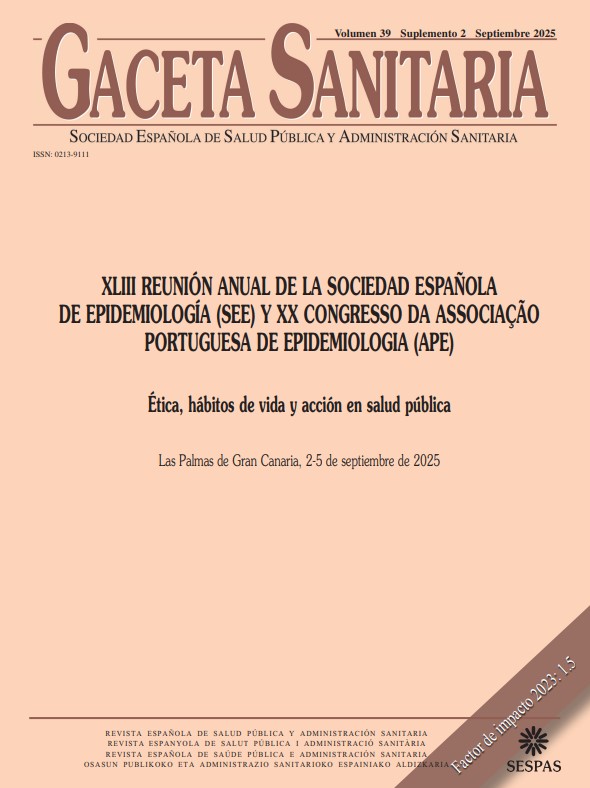616 - SOCIOECONOMIC INEQUALITIES IN EXCESS INFANT MORTALITY ATTRIBUTABLE TO EXTREME HEAT IN CATALONIA
Research Group on Statistics, Econometrics and Health (GRECS), University of Girona; CIBER of Epidemiology and Public Health (CIBERESP); Observatori-Organisme Autònom de Salut Pública de la Diputació de Girona (Dipsalut).
Background/Objectives: Exposure to high temperatures poses a direct threat to human health, particularly for vulnerable populations with limited socio-economic or physiological adaptative capacity, such as infants (< 1 year of age). In contrast to the growing body of literature linking high temperature with overall excess mortality, studies reporting infant heat-related mortality in our setting are limited. Our study aims to quantify the burden of infant deaths –both overall and cause-specific– attributable to excess heat in Catalonia, Spain, during the period 2012 to 2022.
Methods: We used a longitudinal ecological design with information on daily infant mortality, daily meteorological variables (maximum/minimum temperature and relative humidity), daily air pollution (PM10, NO2, O3, and CO), and the average net income per person, all at basic health area (ABS) level. A spatio-temporal Bayesian framework was used to make spatial predictions of the temperature values in each of the ABS, and to compute the excess risk of infant death attributed to extreme temperatures.
Results: A total of 1,830 infant deaths (57.4% boys) were recorded between 2012 and 2022 in Catalonia. Among them, 858 occurred during the first 6 days of life (i.e. early neonatal mortality), 391 between 7-27 days (i.e. late neonatal mortality), and 581 between the 28 to 364 days (i.e. post-neonatal mortality). The most frequent causes of death were conditions related to duration of gestation (n = 357), perinatal cardiovascular and respiratory conditions (n = 154), and sudden infant death syndrome (n = 123). In 2022, a year marked by record-breaking heat and unusually high excess mortality in Spain, there was an increased number of heatwaves (n = 6), which began earlier (the first on June 1st), lasted longer, and affected a greater number of ABS, compared to those occurring between 2012-2021. Overall, we identified an excess infant mortality attributed to extreme heat, which was influenced by extreme humidity and economic deprivation in the ABS. Results by cause-specific mortality will be further explored.
Conclusions/Recommendations: Our study, which uses a model to predict temperatures and estimate excess deaths at a small-area level that overcomes relevant limitations of previous studies, will contribute to clarify the impact of exposure to high temperatures on infant mortality in Catalonia.
Funding: AGAUR, Departament d'Acció Climàtica, Alimentació i Agenda Rural i pel Departament de Recerca i Universitats de la Generalitat de Catalunya (2023-CLIMA 00037).















